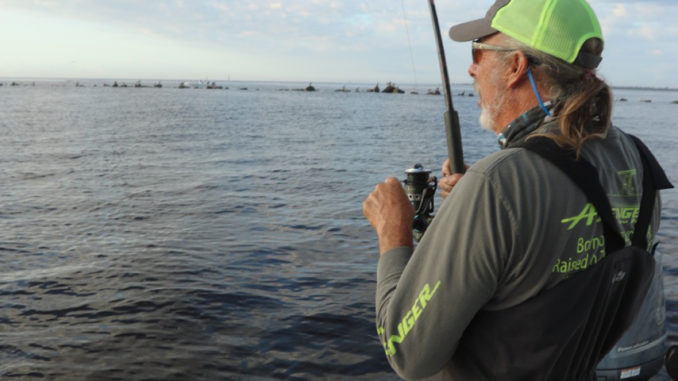
When fighting a nice fish, take advantage of your tackle, don’t fail with the landing net
It happens to almost every angler. You hook a trophy fish that has your drag screaming and your rod doubled over. The battle lasts several minutes, and you finally get a few looks at the fish, which you estimate to be one of your biggest ever.
And then, right as you or your fishing buddy tries to net the fish, your hook pops free, your line goes slack and your trophy catch becomes the one that got away.
Even worse, you’ve got the fish netted, but while trying to lift it, either the net breaks or you lose control of it as the fish makes one last ditch effort to remain free.
So how do you avoid this outcome? These tips will help:
* Have the drag on your reel set properly, which means not too loose and not too tight. Too tight, and the line will snap. Too loose, and the fish will run into dock pilings or other debris.
* Headfirst. The most-important rule for the net man is that the fish’s head goes into the net first. Trying to swoop the fish into the net by the tail is a big mistake. Anything that touches the fish will result in a reaction as the fish tries to get away. Touching it in the hind end is going to give it an extra incentive to flee even harder, and unless you get extremely lucky, you’re going to push it away from behind with the net.
Netting the fish headfirst gives the fish little room to maneuver. It’s not going to like the sight of it, but it’s only option is to swim straight into it, dive up or down, or turn to the left or right, which is far less effective than swimming directly away.
* Don’t swing the net. The best net men realize their role is much-less active than the angler’s. Ideally, the net man will dip the net into the water, hold it steady, then wait for the angler to guide the fish into it headfirst. Sweeping the net at the fish is bad, can push the fish away and often results in knocking the hook free.
* Don’t bring the fish in green. Most big fish have plenty of fight in them the first time they are close enough to net. Trying to net a fish that isn’t ready to give up almost never works out. Dip the net when the fish is in range, but don’t force the issue if the fish makes a run. Let the drag and the rod do the work to wear it down. It may take a few runs, but the fish will tire eventually. Just be patient and ready.
* Once the fish is netted, lift straight up, not out. When you’ve finally got your trophy in the net, all that’s left is getting it in the boat. Failing here is like getting tagged out at home on an inside-the-park homerun.
Many anglers attempt to lift the net with the handle parallel to the ground and swing their fish into the boat. That’s a bad move. This is a time you want to lift straight up, with the handle pointing to the sky. The fish goes deep into the net, which extends below the opening when lifting straight up. To get out now, the fish would have to jump up and to the side, a difficult task especially once it’s out of the water.
Now, you just keep lifting with the handle pointing straight up, grab the hoop of the net, and once it is above the side of the boat, bring the net and fish aboard.
A real drag
Some anglers use a fish scale to set their drag at 1/4 to 1/3 the breaking strength of their line. To do this, put your rod in a rod holder, tie the line to the scale, then pull the line with the scale until the drag allows line to slip from the reel. Adjust the drag until that happens at the proper percentage of your line’s rating.
If you’re using 15-pound test line, set the drag to slip at around 3 to 4 pounds. And when fighting a fish, don’t reel when the fish is pulling drag. Reel only when the fish stops running, or when it’s running directly toward you.

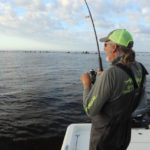
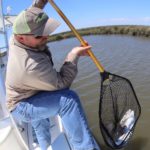
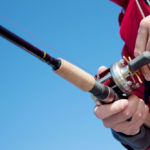

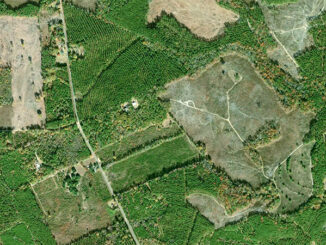
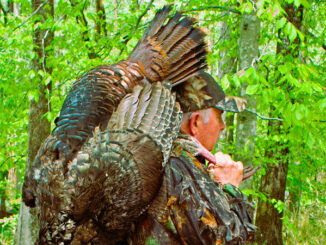
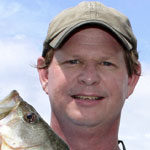
Be the first to comment